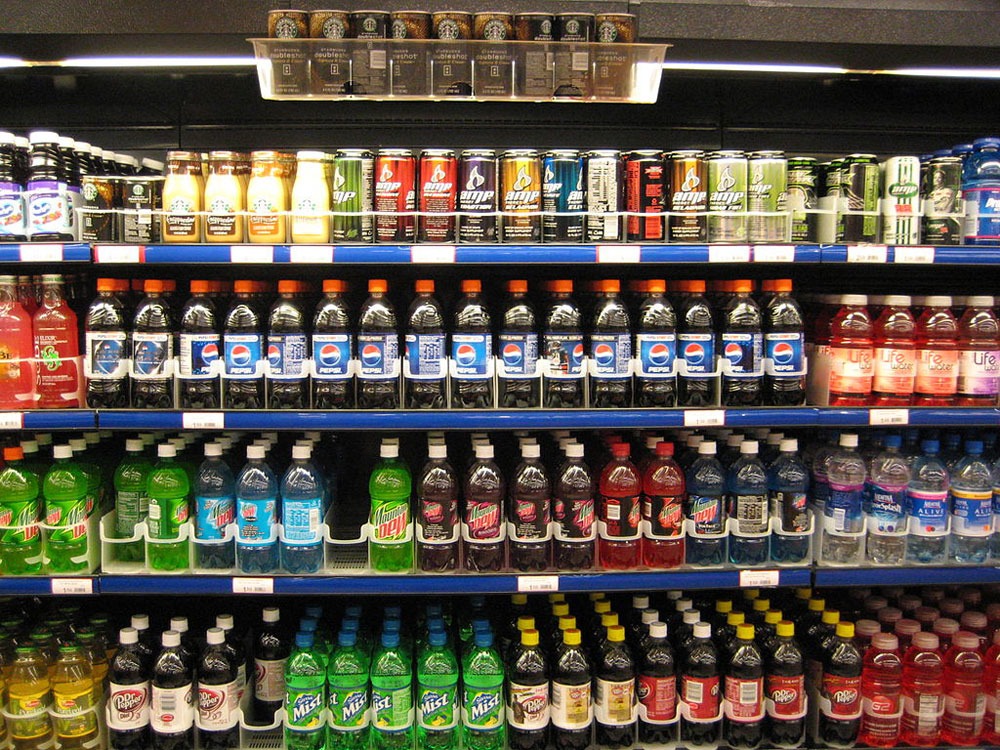
December 9, 2020; Brookings Institution
The last time we checked in on Seattle’s controversial and comprehensively studied sugary drinks tax was in February, when it was showing every sign of success, having both reduced consumption and generated $22 million, a return far better than projected. Further, given that certain health effects of sugary drinks, like obesity and diabetes, force life expectancies downward and health care costs higher, the actual cost saving to taxpayers from reduction in consumption is likely much higher. (For every one to two daily servings of soda consumed, the lifetime risk of developing diabetes increases by 30 percent.)
More importantly, the health implications have never been higher, as diabetes, hypertension, and obesity are among the pre-existing conditions that have made individuals more susceptible to COVID.
This report from the Brookings Institution aims some of the blame at what it calls our “broken”—or more accurately, highly commodified—food system in the United States. It also suggests that now’s the time to consider a bolder approach on a policy which clearly has many positive effects:
The solution is to follow Mexico’s lead and enact a national tax on sweetened drinks at a rate high enough to deliver real health benefits. In Mexico, this tax reduced consumption of taxed beverages by 5.5 percent in the first year after implementation and 9.7 percent in the second year.
But in this country, such taxes are local; there are currently no states with taxes on sugar-sweetened drinks. Only local municipalities have levied such taxes, and there are only eight of them: Boulder, Colorado; Washington, DC; Philadelphia, PA; Seattle, WA; and four California cities—Albany, Berkeley, Oakland, and San Francisco. California passed a ban in 2018 on any more cities enacting a sugary drink tax until 2031, and the state is now embroiled in a lawsuit contesting that ban. Because the ban specifically prohibits cities from imposing any new taxes on groceries, the plaintiffs say this violates the state constitution, which gives taxing power specifically to municipalities.
Sign up for our free newsletters
Subscribe to NPQ's newsletters to have our top stories delivered directly to your inbox.
By signing up, you agree to our privacy policy and terms of use, and to receive messages from NPQ and our partners.
When we talk about opposition, of course, we must also talk about industry-funded campaigns, which have historically included such things as co-branding efforts with compliant nonprofits, as is detailed painstakingly in this research about Coca-Cola. Even with so many other priorities pressing in, now may be a good time to pursue state and national taxes on sugary drinks. As the report details:
COVID-19 has turned a harsh light on the implications of poor metabolic health for quality of life and for the risk of death. There is a case in theory for a graduated tax on damaging ingredients, especially sugar and starch in all processed foods and drinks. But in practice, it is easier to tax the main delivery mechanism (in the US): sweetened beverages. In terms of design, the best approach is to tax sugar and corn syrup content, rather than just the volume of the drink itself. A tiered tax, with the highest rate (two cents an ounce), levied on drinks with the highest sugar content (20 grams per eight ounce serving), as proposed by the American Heart Association, would be especially effective.
Over a lifetime, on reasonable assumptions, this tax would save half a million lives and cut health care costs by $100 billion.
In Seattle, with their sugar-sweetened beverage tax in place since January 2018, raising more than $23 million annually, Mayor Jenny Durkan was able to announce the distribution of $800 supermarket vouchers to over 6,000 families during the pandemic. These vouchers went to people who had lost jobs, and whose businesses were closed. Seattle was one of the first major cities that was hard hit by the pandemic.
This use of an already-existing beverage tax demonstrated how such a tax can “give back” to its community but, perhaps more importantly, it demonstrates the value of the health benefits provided. (One-third of the added sugar in American diets for both children and adults comes from sugar-sweetened beverages.)
According to this report, taxing sugary drinks is about prevention and cost effectiveness. But, as this report states, the problem doesn’t stand alone, but as part of a food system where food deserts limit the availability of healthier options. Given this context, however, and the need for more comprehensive attention to food production and access, a sugary drink tax, over a lifetime, might save half a million lives and cut health care costs by $100 billion. It could also raise around $5 billion a year (according to the Congressional Budget Office).—Carole Levine and Ruth McCambridge













